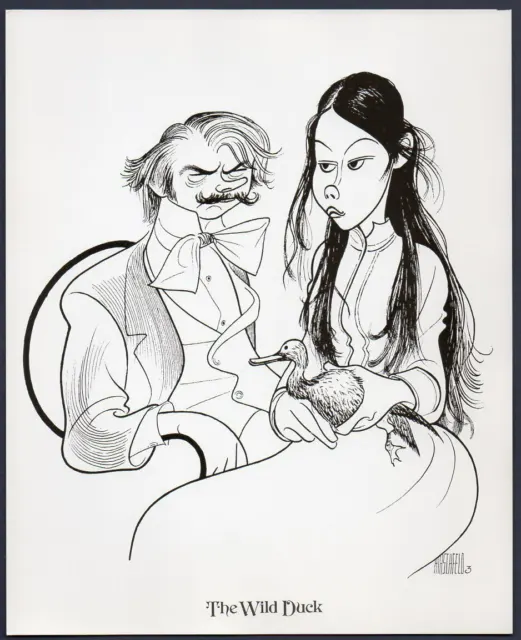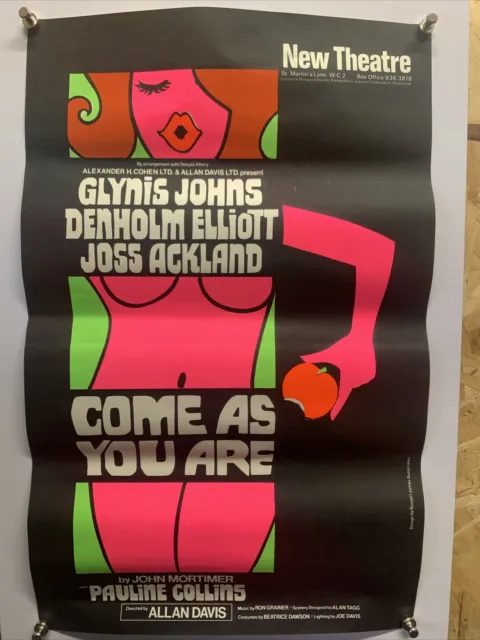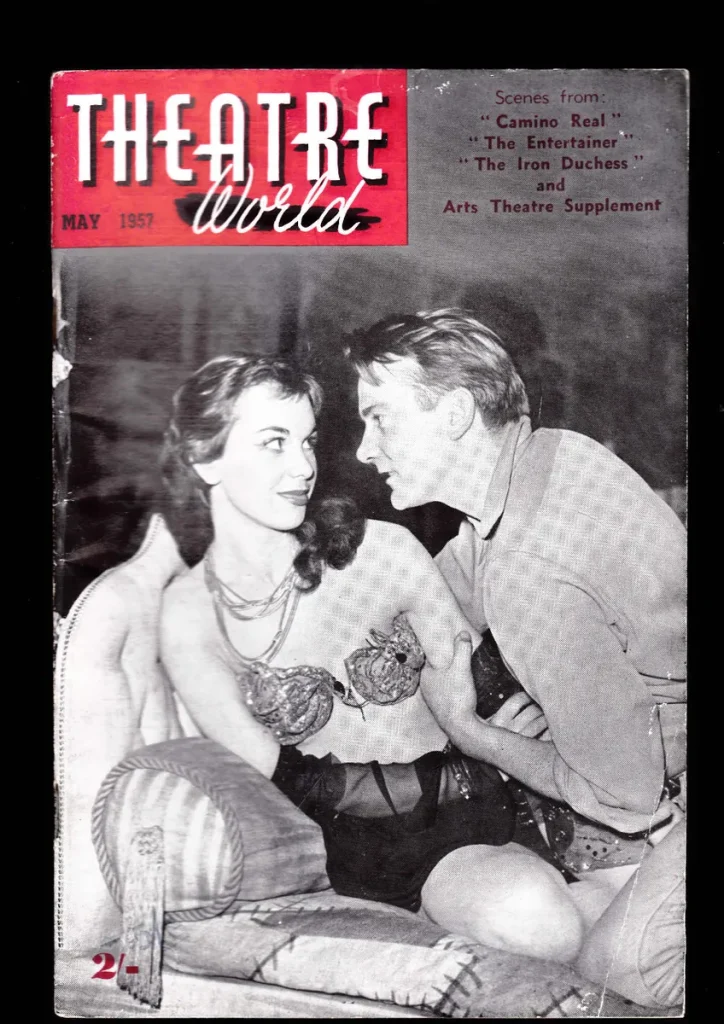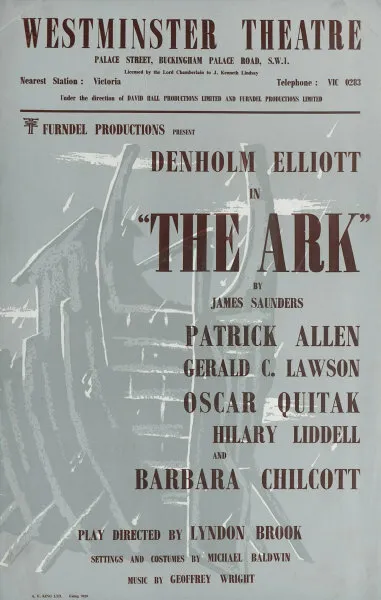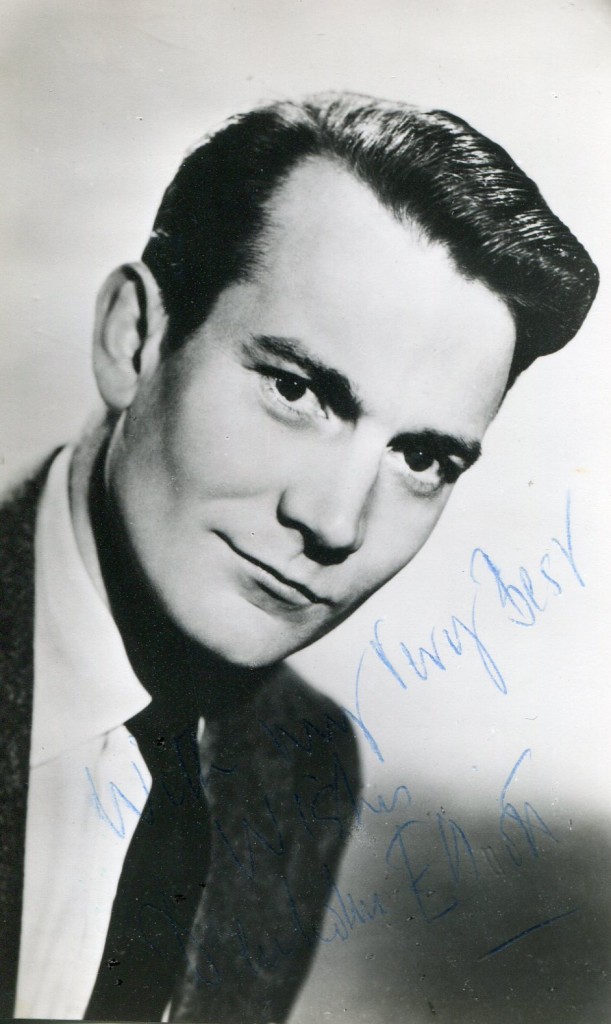












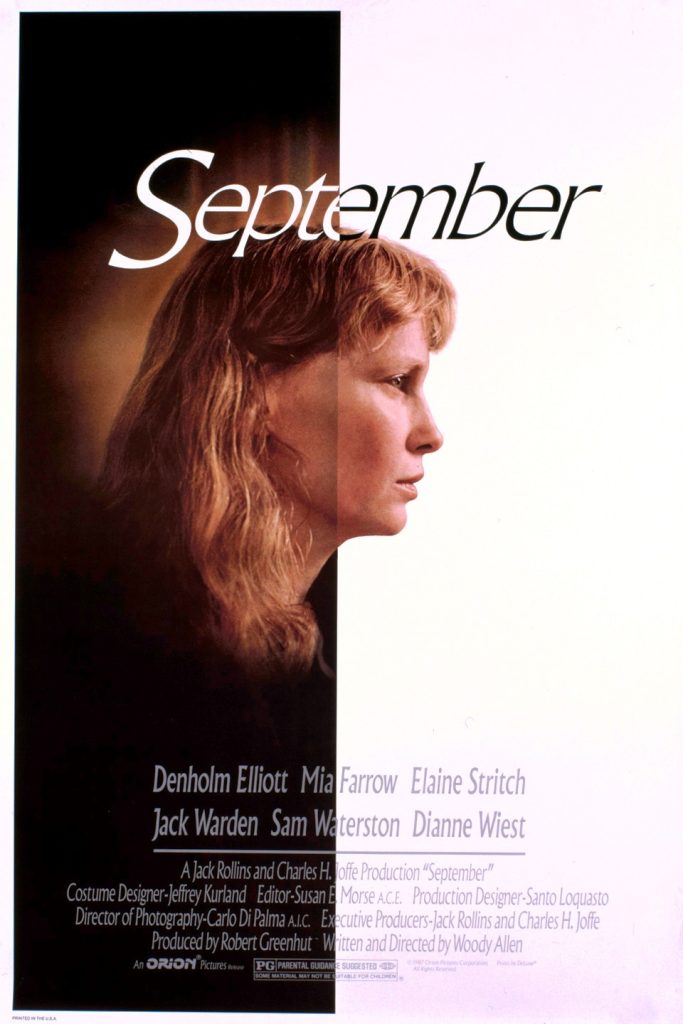


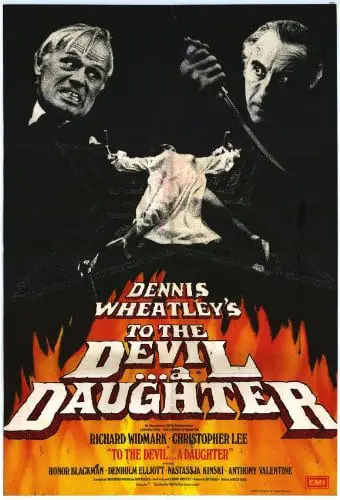


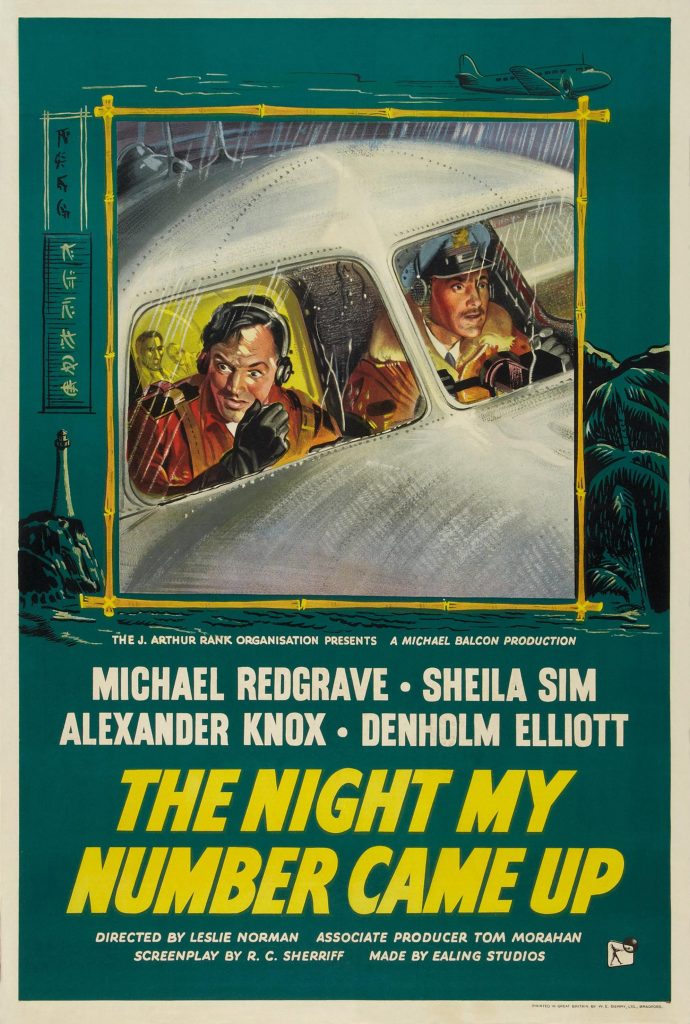



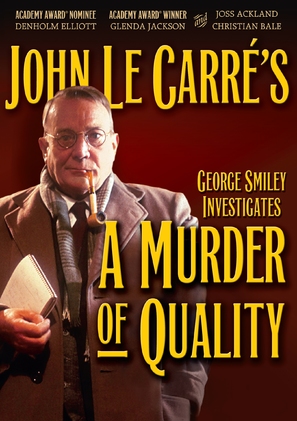

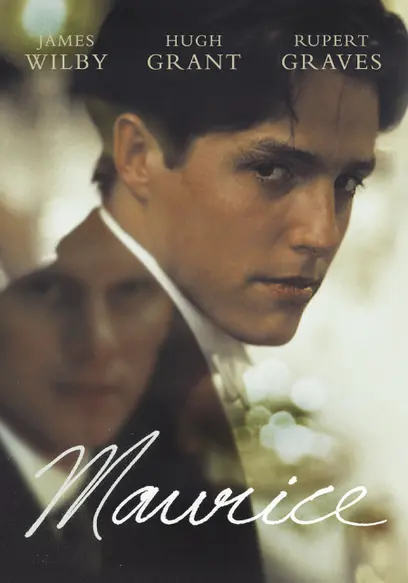
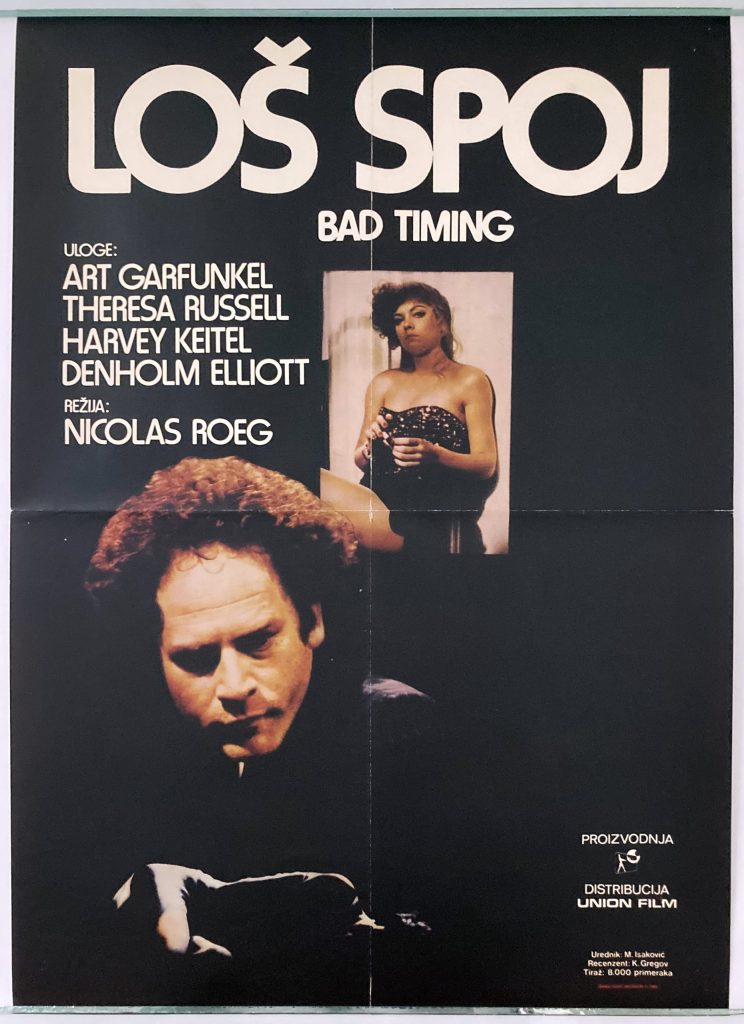

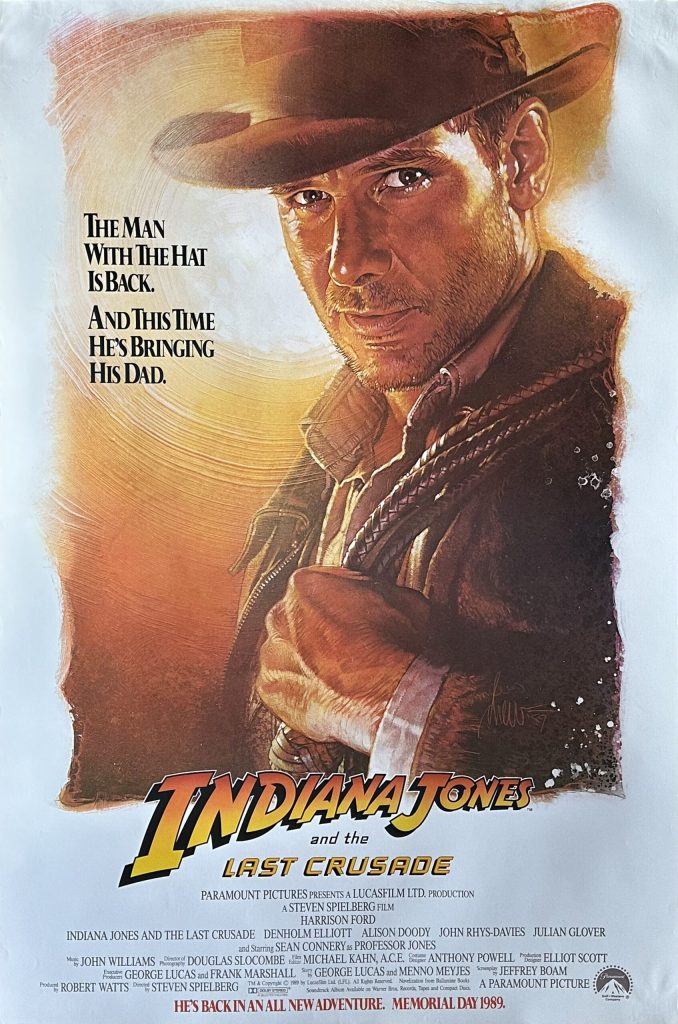
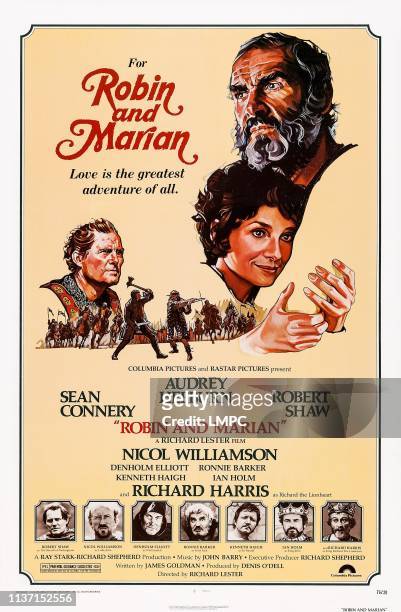

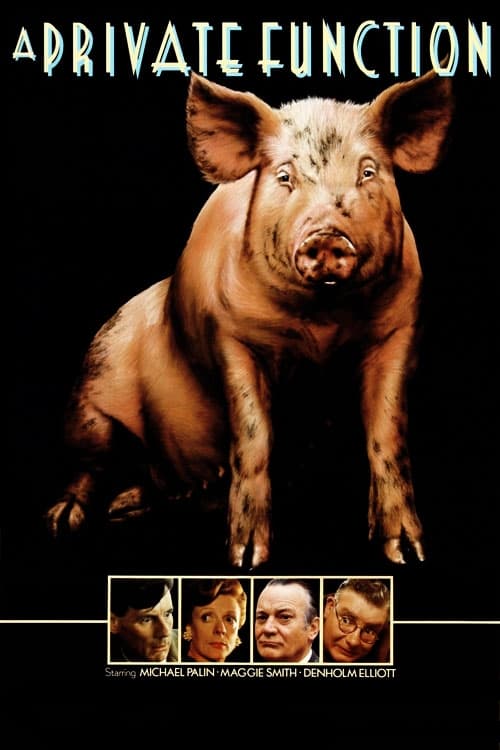



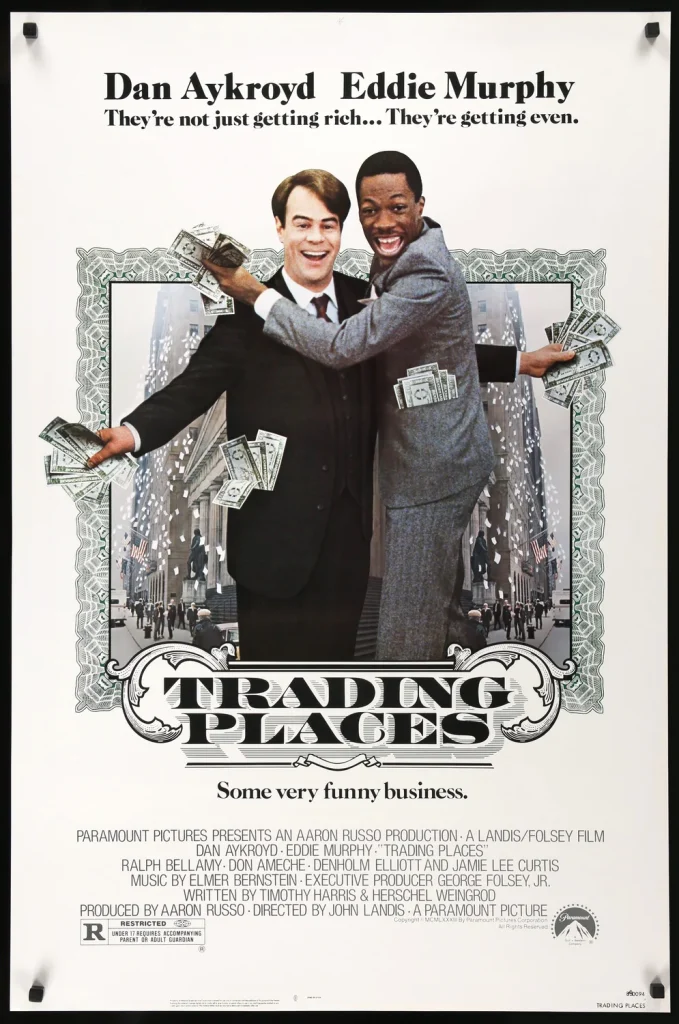


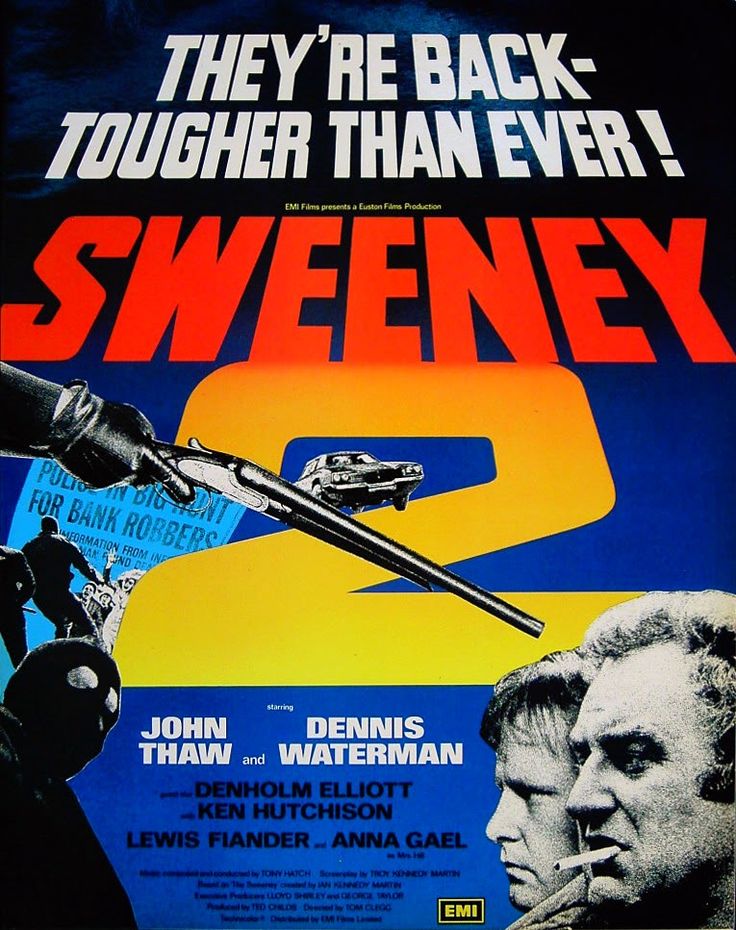
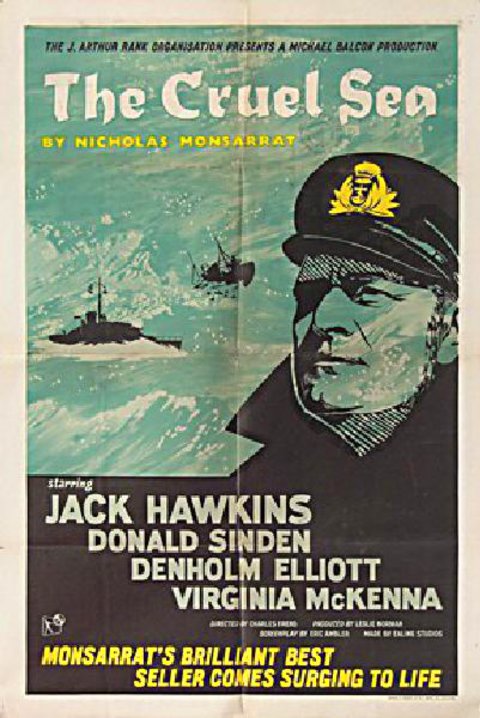
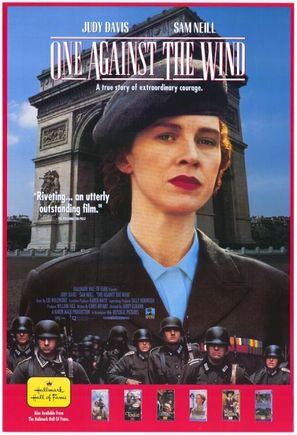


Denholm Elliott was born in Ealing, London in 1922. His first major movie role was “The Cruel Sea” in 1953. His other roles include “The Heart of the Matter”, “Trading Places” and “A Room With A View”. He died in 1992.
David Shipman’s “Independent” obituary:
After an unhappy childhood, he studied acting at RADA (on the advice of his psychiatrist), but he left after a year. He spent the war with the RAF, and it was his three years as a prisoner of war in Germany, playing in amateur productions, which intensified his interest in acting. He began his career in 1945 and went in to high gear when Laurence Olivier selected him to play his son in Christopher Fry’s comedy, Venus Observed, in 1950. Later that year, Elliott went to New York to play the dual role – done by Paul Scofield in London – in Fry’s adaption of Anouilh’s Ring Round the Moon. Both performances won awards for Elliott, who had already made his film debut in Dear Mr Prohack in 1949, based on a novel by Arnold Bennett. Cecil Parker played the title-role and Elliott was a minor civil servant who marries his daughter, Sheila Sim.
His performance suggested a career as a character actor, as did the one he gave as Ralph Richardson’s cowardly son in The Sound Barrier (1952) but the acclaim in London and New York brought him some straight leading roles, as in The Cruel Sea (1953), as the officer married to a two-timing actress (Moira Lister). He was much better cast as the civil servant who cuckolds Trevor Howard in The Heart of the Matter (1953), but in Lease of Life (1954) and The Man Who Loved Redheads (1954) he was merely just another jeune premier. He was not movie-star material, as he proved in the lead of Pacific Destiny (1956), based on Sir Arthur Grimble’s autobiography, A Pattern of Islands. Elliott’s rather remote, semi-aristocratic style (though this he would late use to good advantage) were never likely to make him a popular stage favourite. This he realised, continuing to act on the stage, notably in TS Eliot’s The Confidential Clerk in 1953 and in Tennessee Williams’s Camino Real in 1957.
The film offers became thin on the ground with the advent of Albert Finney and a sturdier kind of British hero. What changed Elliott’s career was a king-sized character role in Nothing but the Best (1964), a title which referred to what Alan Bates wanted, as he looks for his ‘room at the top’. However, this was not John Braine rehashed, but a clever social satire by Frederic Raphael, with Elliott wonderfully cast as the black sheep of an aristocratic family. Bates realises that the Elliott character can teach him much of what he needs to know in his ascent and Elliott, who has little of his past except a monthly cheque, is happy to accept. The film was directed by Clive Donner, but when he tackled something similar later, Here We Go Round the Mulberry Bush, the result was disastrous. Elliott this time played the father of the girlfriend of the man on the make, Barry Evans, and was briefly amusing as the wine-snob given to chasing the maid. He did his first film in Hollywood, King Rat (1965), as one of the most cynical of the prisoners, but it was his role as a sleazy back-street abortionist in Alfie (1966) which really attracted national attention. He returned to Hollywood to play a self-appointed vice-finder in The Night They Raided Minsky’s (1968). He had established himself in light villainy, and although too varied as an actor to be type-cast he was seldom to escape from this, but he did in Sidney Lumet’s film of Chekhov’s The Seagull (1968), in which he was the doctor.
He had a leading role in Patrick Garland’s version of A Doll’s House (1973), with Claire Bloom, as Krogstad, the conniving bank official aiming to replace Torvald (Anthony Hopkins), but was back on familiar ground with The Apprentice of Duddy Kravitz (1974), as a drunken has-been British director ‘used’ by Richard Dreyfuss in his rise to the top. He worked almost non-stop in films thereafter, in parts big and small, and the latter would include Harrison Ford’s academic superior in Raiders of the Lost Ark (1981) and the second of its sequels, Indiana Jones and the Last Crusade (1989). Among the larger ones was the immensely snooty but bribable butler in Trading Places (1983) and Mr Emerson in A Room wth a View (1986): perhaps because this last was an unexpectedly big success Elliott was nominated for an Oscar as Best Supporting Actor, but by the time the director James Ivory and screenwriter Ruth Prawer Jhabvala had finished with Forster’s novel even an actor of Elliott’s skill could not make the character anything but unfathomable.
Apart from Noises Off, perhaps his best screen work during the last decade was as an ageing but brave Fleet Street hack in Defence of the Realm (1985). Gabriel Byrne, who played the lead, observed: ‘I amended the actor’s cliche to ‘Never work with children, animals or Denholm Elliott’.’
The above “Independent” obituary can also be accessed online here.
